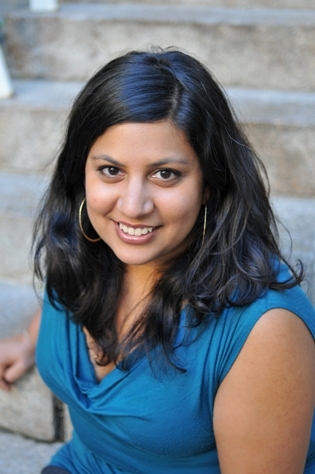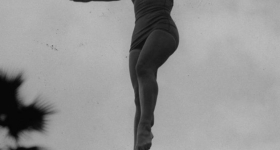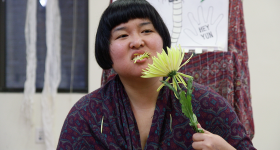I
have a friend whose litmus test for relationships consists of one question:
“Does he know how special you are?” It’s a simple question, one that encompasses
the way your partner treats you and the basis of that treatment, but it also forces
you to reflect on your own self-worth and what that entitles you.
I’m
lucky to have this friend. And in the absence of her or someone like her, any
woman would be lucky to have Samhita Mukhopadhyay’s book, Outdated. The book works double duty, acting as both a guide to
dating as a feminist and a critique of the social and political conditions that
make it hard for women to negotiate their intimate relationships. To echo one
of the book’s chapter titles and recurring themes, feminism didn’t ruin dating;
dating ruined dating.
To
these ends, Mukhopadhyay wields heavy-duty language -- heteronormativity,
patriarchy, crisis of masculinity -- to get her readers to the realm of
romantic relationships. The first few chapters could come from straight from a
women’s studies reader, as Mukhopadhyay fiercely critiques what she terms the
romantic industrial complex -- that machine comprised of media and sellers of
things like chocolates, jewelry, and vacations -- for reinforcing and
capitalizing off of traditional views of romance. Her arguments against
marriage as the objective of all relationships are well rehearsed, but
necessary in Mukhopadhyay’s larger goal of outlining “a radical imperative for
love.” The book’s tone and learnedness (there are end notes!) can be
off-putting in these moments; when you’re searching for some solace or specific
direction, or when you just want to wallow in your dating failures, a critique
of patriarchy is perhaps the last thing you’d want to read.
And
yet this turn away from self-loathing might be exactly what women need. Where a
mainstream dating guide might begin with a laundry list of what’s wrong with
women today, Outdated instead offers
a refreshing affirmation of both feminism and women in general.
It
becomes clear early on that the book’s ideal reader is probably someone who’s taken a women’s studies class; in fact,
the reader might have an investment in social justice. For instance, Mukhopadhyay
offers a nuanced discussion of how norms of heterosexuality are foundational to
national politics, examining the differential treatment of Sarah Palin and
Michelle Obama. Yet despite Outdated’s commendable
goal of convincing readers that heterosexual norms are sources of injustice,
the language used to make this argument is just too dense to appeal to a reader
who isn’t already leaning toward radical politics. The more pressing and
appropriate matter the book takes up is that age-old dilemma: how does a social
justice-minded woman put her politics into practice when it comes to dating?

Photo of the author by Danny Avila
The book’s most valuable
contribution is precisely the underlying implication that politics
enter our personal lives in messy ways that resist any neat application of theories
we apply at the level of communities. Even the most feminist of women might
have the desire to get married or otherwise live a normative domestic life. We
all know that sister who calls herself a queer activist of color, yet is
curiously married to a white guy. But there is something about the form of radical
critique that does not leave room for us to acknowledge that such
contradictions are necessary. That is, the kinds of changes that social justice
lobbies for can often require tough, yes militant, language and acknowledgement
of difficult truths. Outdated bravely
toes a line between strongly worded political critique and a more tender
empathy for women whose lives aren’t so black and white.
With that said, Outdated picks up steam in its smart, compassionate, and empowering
second half by taking up questions that a mainstream guide would ask, but
turning them on their head, all with a humor and tone that make it seem like
you’re in conversation with a sharp, politically conscious girlfriend. A
chapter that exposes sexist ideas propagated by dating books also examines the
“kernels of truth” they contain. Another chapter offers guidance not on the
kinds of men to avoid, but rather on a broader history of masculinity that
shapes how we understand men in the first place -- a move that shows Outdated’s care not just for women but
also for the men who live with patriarchical norms. Mukhopadhyay handles the
potentially tricky topic of casual sex by outlining the racist and sexist
stereotypes that can make casual sex a minefield for women of color,
especially, but she does so without vilifying the act itself, writing, “A
woman’s power does not arise from her denial of pleasure to herself and her
potential partner, but her educated, happy, successful exploration and
expression of it. That is what self-empowered sexuality looks like.” In these
moments of the book that acknowledge women’s varying paths to intimacy, it
becomes clear that Mukopadhyay respects and indeed loves her reader.
Outdated is apt in what we can perhaps not
lightly enough call a precarious time for women. The state and liberal politics
have effectively recentered womens’ bodies in ugly ways, while the mainstream
media continues to foist tired debates about motherhood onto the US public. Mukhopadhyay
reminds us that our intimate relationships exist in the same fabric out of
which these news pieces, laws, and hate speech against women also emerge, and
that the shared terrain requires that women be informed, reflective, and strong
-- feminist. Outdated, then, is not
just for women looking to date, but for women in any stage of a relationship --
for that thinking woman who needs validation and intellectual grounding for her
desires and self-worth.
Marites L. Mendoza is a PhD student
in the English Department at the University of Washington. She lives, reads,
and writes in Seattle.









Comments